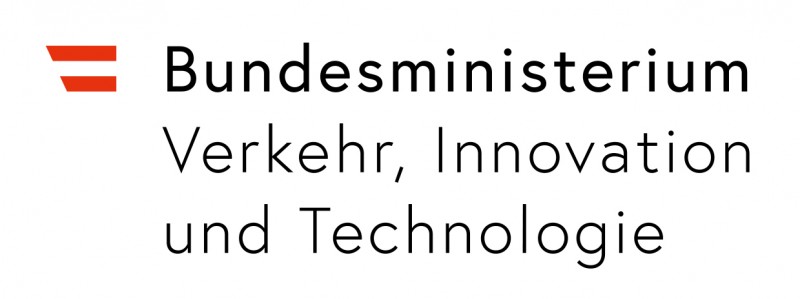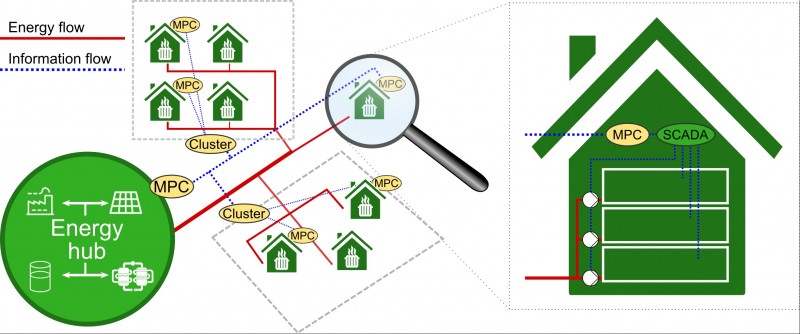ÖKO-OPT-AKTIV: Optimised control and operating behaviour of thermally activated buildings in future urban districts
Starting point / motivation
In the efforts to make urban energy systems more environmentally friendly and at the same time more cost-efficient, a large savings potential has been demonstrated in recent decades through improved building envelopes and the inclusion of renewable energy sources. In contrast, the investigation of the interplay of the energy systems of the individual buildings, on the level of entire city districts, is only in the early stages.
Contents and goals
The project ÖKO-OPT-AKTIV aims to improve the control strategies of the energy systems of entire urban districts. Through an optimised interaction of the buildings’ own subsystems, the inclusion of volatile regenerative energy sources and central storage management, both economic and ecological improvement potentials will be activated.
Methods
Based on the current development of the energy system of a future urban quarter in Graz-Reininghaus, an adaptive, model predictive control strategy for the energy supply of future urban quarters will be developed. The model predictive control of the energy hub developed in the previous project ÖKO-OPT-QUART will be supplemented by communication with the control systems in the individual buildings and extended to a comprehensive, self-learning overall control concept for the entire district. The individual buildings are heated and cooled via thermally activated components and supplied via a low-temperature local heating and cooling network including a central hot water storage fed by ground water heat pumps. In addition, an urban photovoltaic power plant supports the supply of electrical energy. The developments and analyses are carried out on the basis of detailed thermo-electric simulation models, where the modelling of the thermally activated components is based on the results of the solSPONGEhigh project.
The adaptive, model predictive control is subjected to unexpected climatic conditions, technical building failures and variable tariffs in order to test its robustness and further develop its practical suitability.
Expected results
The result is an adaptive, model-predictive control system that ensures resilient and cost- or emission-minimized operation of the overall energy system of a city district through optimal management of the central energy storage facilities and the thermally activated buildings.
Projektvolumen
EUR 595.740,--
Projektlaufzeit
2020-01-01 - 2022-10-31
Supported by
Stadt der Zukunft ist ein Forschungs- und Technologieprogramm des Bundesministeriums für Verkehr, Innovation und Technologie. Es wird im Auftrag des BMVIT von der Österreichischen Forschungsförderungsgesellschaft gemeinsam mit der Austria Wirtschaftsservice Gesellschaft mbH und der Österreichischen Gesellschaft für Umwelt und Technik ÖGUT abgewickelt. Stadt der Zukunft - ÖKO-OPT-AKTIV

Projektpartner
Institut für Wärmetechnik der Technischen Universität Graz
AEE - Institut für nachhaltige Technologien
TB-STARCHEL Ingenieurbüro-GmbH
PMC - Gebäudetechnik Planungs GmbH
ISWAT GmbH
Markus Nebel Handelsvertretung GmbH
Contact

Daniel MUSCHICK
daniel.muschick@best-research.eu
Area Management

Markus GÖLLES
markus.goelles@best-research.eu
